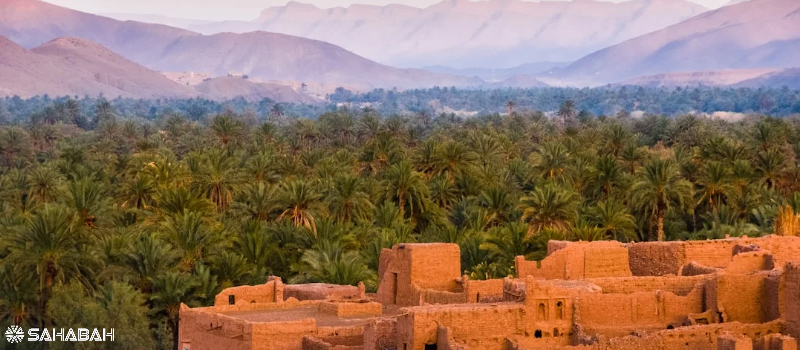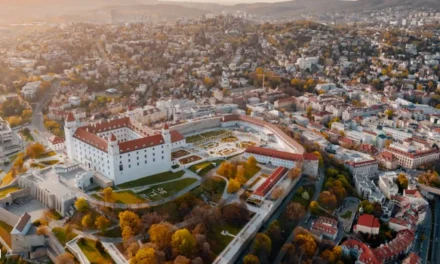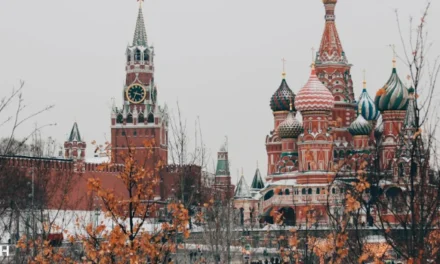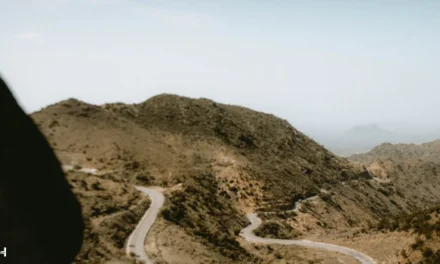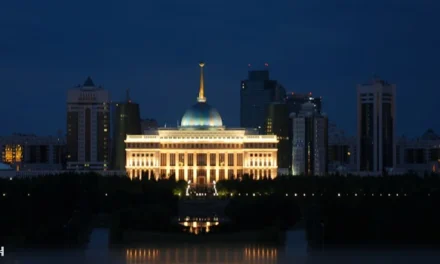Despite being separated by vast distances and cultural differences, Morocco and Israel have shared a complex and often tumultuous relationship throughout history. This article delves into the intricate dynamics between these two nations, examining Morocco’s stance on Israel and the factors that have shaped their diplomatic ties.
Morocco’s position on Israel has been influenced by various factors, including the Arab-Israeli conflict, the Palestinian cause, and regional geopolitical considerations. However, in recent years, there have been significant developments in the relationship between the two countries, with the normalization of relations and the establishment of diplomatic ties.
Historical Background: Morocco’s Stance on Israel
Morocco’s stance on Israel has been shaped by the broader context of the Arab-Israeli conflict and the Palestinian cause. Initially, Morocco did not recognize the state of Israel after its establishment in 1948, aligning with the position of many Arab nations at the time.
However, in the 1990s, Morocco took a significant step by establishing low-level diplomatic relations with Israel. This move was part of the broader peace process in the Middle East and reflected Morocco’s desire to play a constructive role in resolving the Israeli-Palestinian conflict.
Despite this initial rapprochement, Morocco suspended its diplomatic ties with Israel in the early 2000s, citing concerns over the stalled peace process and the ongoing conflict in the region.
Diplomatic Relations: A Rollercoaster Ride
The relationship between Morocco and Israel experienced a significant breakthrough in December 2020 when the two countries agreed to normalize relations as part of the Abraham Accords. This agreement, brokered by the United States, paved the way for the establishment of full diplomatic ties and the opening of embassies in each other’s capitals.
The normalization agreement was hailed as a historic step towards peace and stability in the region. It was also seen as a strategic move for both countries, as it opened up new opportunities for economic cooperation, trade, and cultural exchange.
However, the normalization process has not been without its challenges. Morocco has maintained its support for the Palestinian cause and has emphasized the importance of a two-state solution to the Israeli-Palestinian conflict.
Economic and Trade Ties: Opportunities and Challenges
The normalization of relations between Morocco and Israel has opened up new avenues for economic cooperation and trade. Both countries have expressed interest in exploring opportunities in sectors such as agriculture, tourism, technology, and renewable energy.
However, there are also challenges and barriers to economic integration. Some of these challenges include:
- Existing trade agreements and regional economic blocs
- Potential opposition from certain segments of society
- Logistical and transportation challenges
Despite these challenges, there is optimism that increased economic cooperation can bring mutual benefits and contribute to regional stability and prosperity.
Cultural and Religious Connections
Morocco and Israel share a rich cultural and religious heritage, particularly with regard to the Moroccan Jewish community. Morocco has played a significant role in preserving Jewish heritage and promoting interfaith dialogue and understanding.
The normalization of relations has opened up new opportunities for cultural exchange and cooperation in areas such as education, arts, and tourism. This can further strengthen the bonds between the two nations and foster greater understanding and appreciation of each other’s cultures.
Regional Dynamics and Geopolitical Considerations
Morocco’s stance on Israel is also influenced by regional dynamics and geopolitical considerations. As a member of the Arab League and a key player in the Middle East and North Africa region, Morocco has to balance its national interests with its regional alliances and commitments.
The normalization of relations with Israel has been met with mixed reactions from other Arab nations, with some expressing support and others voicing concerns over the Palestinian cause. Morocco has sought to navigate these regional dynamics while maintaining its commitment to the two-state solution and the rights of the Palestinian people.
Public Opinion and Domestic Factors
Public opinion and domestic factors have also played a role in shaping Morocco’s stance on Israel. While some segments of Moroccan society have welcomed the normalization of relations, others have expressed concerns or opposition, citing the Palestinian cause and historical grievances.
Political parties and civil society organizations in Morocco have also weighed in on the issue, reflecting the diverse perspectives and interests within the country. The Moroccan government has sought to balance these domestic considerations while pursuing its foreign policy objectives.
Future Prospects and Challenges
The normalization of relations between Morocco and Israel has opened up new opportunities for cooperation and collaboration in various fields. However, there are also challenges and obstacles that need to be addressed.
One of the key challenges is the ongoing Israeli-Palestinian conflict and the need for a just and lasting resolution. Morocco has emphasized the importance of a two-state solution and has called for renewed efforts to revive the peace process.
Additionally, there are concerns about the potential impact of the normalization process on Morocco’s relations with other Arab nations and its standing in the region.
Despite these challenges, there is hope that increased dialogue, cooperation, and mutual understanding can contribute to regional stability and prosperity. International mediation and diplomacy will play a crucial role in navigating these complex issues and fostering an environment conducive to peace and cooperation.
Conclusion
The relationship between Morocco and Israel is a complex and multifaceted one, shaped by historical, political, and cultural factors. While the normalization of relations has opened up new opportunities for cooperation and collaboration, there are also significant challenges and obstacles that need to be addressed.
As the two countries navigate this new chapter in their relationship, it is essential to remain committed to dialogue, mutual understanding, and the pursuit of a just and lasting resolution to the Israeli-Palestinian conflict. Only through sustained efforts and a genuine commitment to peace can the full potential of this relationship be realized.
Readers are encouraged to stay informed and engaged on this complex issue, as it has far-reaching implications for regional stability, economic prosperity, and the pursuit of lasting peace in the Middle East.
FAQ: Does Morocco have ties with Israel?
Yes, Morocco and Israel have recently established diplomatic relations under the Abraham Accords.
What is the significance of the accord between Moroccan and Israeli authorities?
The accord between Moroccan and Israeli authorities signifies a normalization of relations between the two countries.
How does the agreement between Rabat and Israel impact the region?
The agreement between Rabat and Israel has the potential to have positive implications for stability and cooperation in the region.
Has Morocco recognized Israeli sovereignty over specific territories?
Morocco has officially recognized Israeli sovereignty over certain territories as part of the normalization agreement with Israel.
What role did King Mohammed VI play in the agreement with Israel?
King Mohammed VI of Morocco played a crucial role in the normalization agreement with Israel by facilitating diplomatic discussions and negotiations.
How have Moroccans reacted to the normalization of relations with Israel?
The reaction among Moroccans to the normalization of relations with Israel has been mixed, with some supporting the move and others expressing reservations.
What other countries have Morocco and Israel established diplomatic ties with?
In addition to Israel, Morocco has also established diplomatic ties with the United Arab Emirates and Sudan in recent years.

